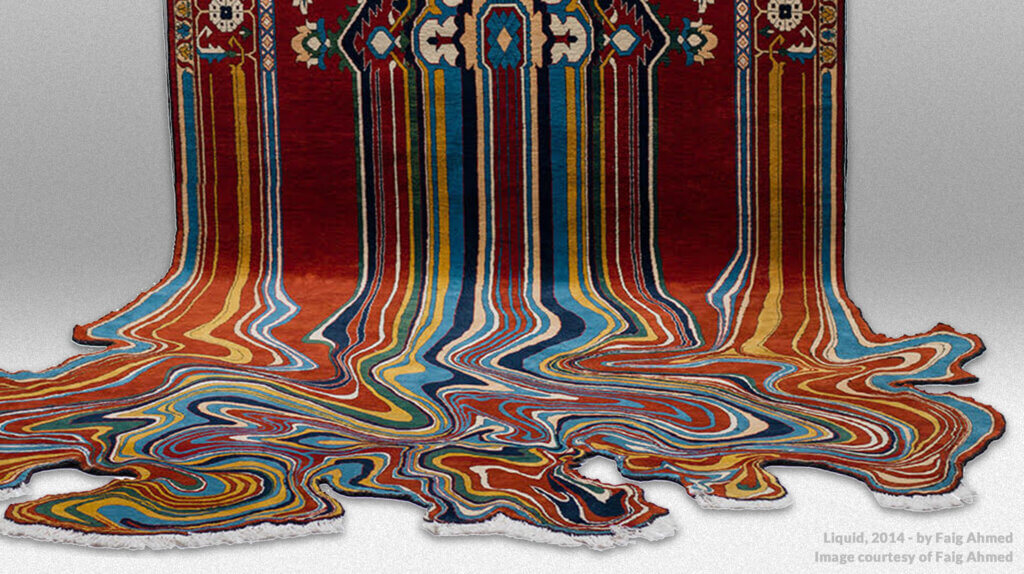
There are languages you know you speak, and there are bits of other languages that you don’t know you speak. New concepts arrive; those concepts get coined, and as and when they get used elsewhere, we see languages evolve. To give yourself an example, simply try speaking English, without using Latin, Greek or, heaven forbid, French. The embryonic stages of this phenomena can be referred to as code-switching. This is the term used to describe somebody alternating between languages among other similarly speaking polyglots. Adding new concepts is just one of many reasons for code-switching, however. Adding flare to conversations is maybe the main usage among polyglots, but there are many other reasons why “hamash” Iranians code-switch “mikoneh”.
To help us out with this fascinating subject, we invited an American-based user-interface designer, secretly known as Reza. He not only joined us to discuss the reasons why people code-switch but joined us in listening to the many peculiar examples provided by our listeners. If you’re curious as to how and why Iranians code-switch between Persian and English, be sure to listen in.
Questions that we also get answers to in this episode
- Is there a government department to counter code-switching in Iran?
- What English words are most commonly used by Iranians?
- How much do Iranians code-switch?
- Do Iranians code-switch more than other peoples?
- Why do the Dutch gamers code-switch so much?
- Why do Iranians do this alliterative thing with words, like “chips mips”?
- Why is the word “relationship”, preferred over the Persian equivalent?
- Do Iranians “have sex” or “do sex”?
A list of 32 common Persian code-switch terms
Examples of Persian-English code-switching are numerous, but to help you get a feel for it, we will be adding some of the more common examples below. If you have anything to add to our list, or you’ve spotted something that we should correct, get yourself to the comments section and do us all a favour.
Translations of Persian (Farsi) used during this episode
| Phrase | Translation | Type |
|---|---|---|
| – already – | Used in various places in Persian sentences | Adverb interjecting Persian |
| Ajib arsehole-i | “You’re a strange kinda” arsehole | English adjective interjecting Persian |
| (Something in Persian) – aside | Used in various places in Persian sentences | Adverb interjecting Persian |
| – baba – | “Father” – normally an exclamation | Persian interjecting English |
| Base-esh injurieh | The base – “is like that” | |
| Be-call, Mi-call-(am) | “To/I’ll” call | English verb with Persian verb prefix, (possessive determiner) |
| Vaat de faaz? | What the fuck, but with ‘faaz’ (“phase”) | English -Persian wordplay |
| Maa ro be fuck daadi | “You” fuck(ed) “us” | Transitive verb interjecting Persian |
| Daghi-fucking-ghan | “Pre-” -fucking-“-cisely” | Interjecting a Persian word |
| In case – | Used in various places in Persian sentences | Noun interjecting Persian |
| Kheili complicated | “Very” complicated | Adjective interjecting Persian |
| Consider kardan | “To” consider | Conjegated verb |
| Kheili cute-eh | “It is very” cute | Adjective interjecting Persian |
| Derink kardan | “To” drink | Conjegated verb |
| Fucked up-eh | “It is” fucked up | Adjective interjecting Persian |
| Handel kardan | “To” handle | Conjegated verb |
| Hich idea-i nadaram | “I don’t have any” idea | Noun interjecting Persian |
| Khob | “So/ok(?)” | Adjective |
| – masalan – | “For example” | Persian interjecting English |
| – midooni – | “You know” | Persian interjecting English |
| Ok-ieh | “It’s” ok | Conjunction |
| Phone-am koo? | “Where is my” phone? | Noun with Persian possessive determiner |
| Play kardan | “To” play (video/music) | Conjegated verb |
| Present kardan | “To” present | Conjegated verb |
| – relax – | Used in various places in Persian sentences | English interjecting Persian |
| Shit e vaghieh | “The real” shit | Noun interjecting Persian |
| Search kardan | “To” search | Conjegated verb |
| Sex kardan | “To have” sex | Conjegated verb |
| Switch kardan | “To” switch | Conjegated verb |
| Tokhmatic | “Seed/testicles”-(auto)matic – we don’t know what this means | Persian interjecting an English word |
| Try kardan | “To” try | Conjegated verb |
| – yani – | “Meaning” | Adjective interjecting English |
But Faig Ahmad isn’t Iranian!
Yes, yes! Yes, yes, and yes! We know. Faig Ahmed, the amaze-balls artist, is not Iranian. He’s Azerbaijani, and his rugs are not, “lozooman”, Persian rugs. They are “oriental”, and arguably “Persian”, in a loose sense. So, for us, this was close enough to base imagery for this episode on. What was important was that Faig Ahmed’s rugs use established motifs which he meddles with, in a modern way. We believe that his rugs beautifully symbolise code-switching, and by us meddling with them further, we felt we embodied this practice.
Check out the recording we did with Waltz, in Persian here.
Image credit: “Liquid”, 2014, courtesy of Faig Ahmed Studio, edited by Ask An Iranian 2021.

Leave a Reply